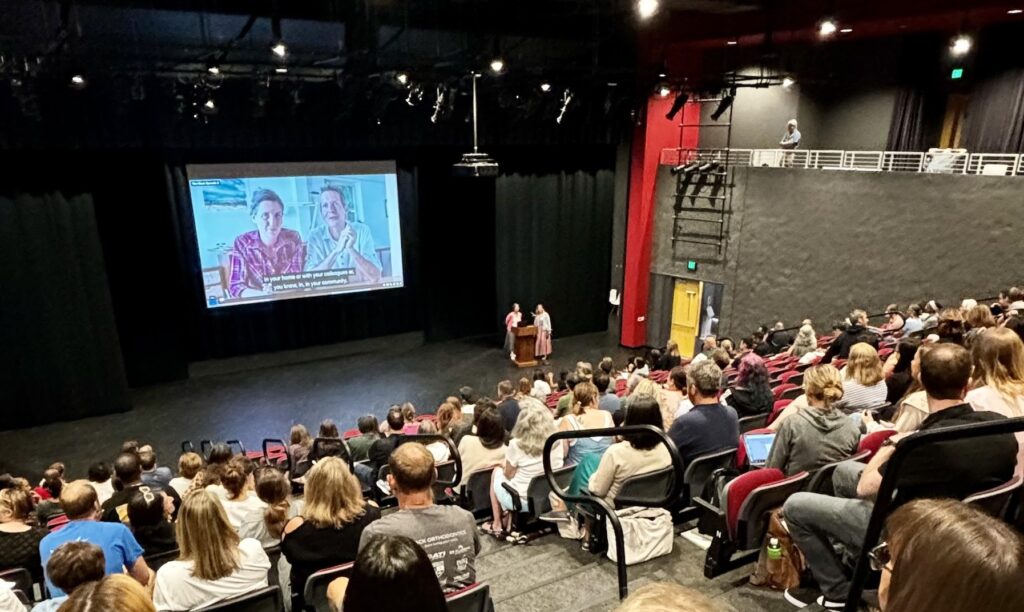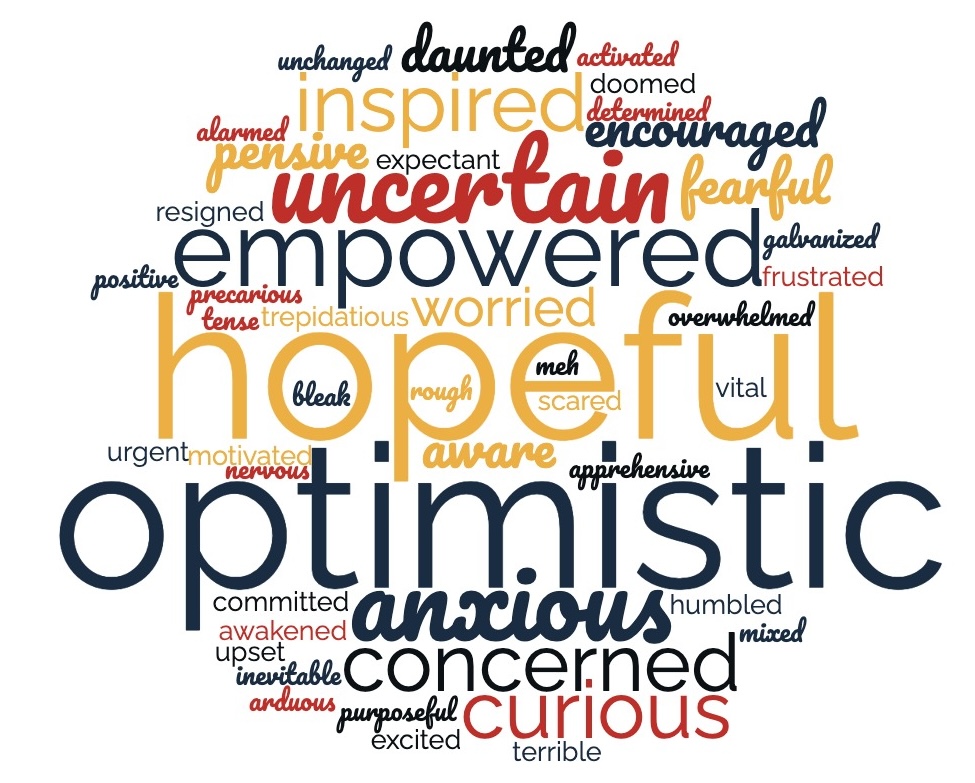Every year, when faculty and staff assemble for opening meetings, we come with varying degrees of readiness but generally high hopes for the school year. Amid grand plans, training sessions, and endless details, we devote a day to professional development. This year’s topic, environmental sustainability, grew out of the Board of Trustees’ decision in December, 2023 to endorse the goals that the Sustainability Leadership Team and the Upper School student Sustainability Committee had recommended over the course of several years. Thus Durham Academy formally committed to
- Educate for sustainability at every level and in every subject
- Reduce greenhouse gas emissions by 25% from 2022-23 levels
- Increase biodiversity on our campuses by at least 2 acres
Instead of focusing on that topic for a single day during opening meetings, we did The Week, a series of short films and discussions, over three separate days.

Seventy-nine faculty and staff (about 35%) responded to a survey afterwards, and sustainability leaders are grateful for their feedback.
For about a third of respondents, most or quite a bit of the information presented was new. In addition, a large majority reported a new degree of understanding about why the school has made a commitment to sustainability. These responses indicate that an overall goal of professional development, to create a common understanding of a given topic, was achieved.
Unlike most PD topics, sustainability has significance for our personal lives and our views of the future. It’s a lot to process in a busy week, and some people felt overwhelmed. Others left the experience feeling hopeful or empowered. Still others described mixed feelings: “daunted but determined” or “anxiously hopeful.” Here is a word cloud of all the reported feelings about the future after experiencing The Week:

What’s next?
The post-PD survey asked what faculty and staff members would like to do next for sustainability at DA. Responses ranged from the specific (pool classroom supplies, sort waste, adjust HVAC settings) to the expansive (model everyday sustainability for students, develop “dinner groups” with plant-based recipes and shopping lists, hold community-wide swap meets). One responder simply said, “Anything! Put me in, coach!”
Finally, participants were asked what kind of education or other support would help them contribute more effectively to sustainability at DA. There was a significant appetite, at least in theory, for more information. Suggestions included newsletters, success stories from students, and initiatives from local organizations. Incentives for desired practices and education about sustainability for parents were also suggested. There was also a desire to partner with like-minded organizations “to bolster camaraderie and amplify impact.”
Overall, it seems we have a consensus at Durham Academy that sustainability is important and that it’s consistent with the school’s mission. We also have a lot of great ideas about how to proceed. These are good results, because everyone’s involvement will be needed to fulfill aspirations of students and meet the school’s commitment.
